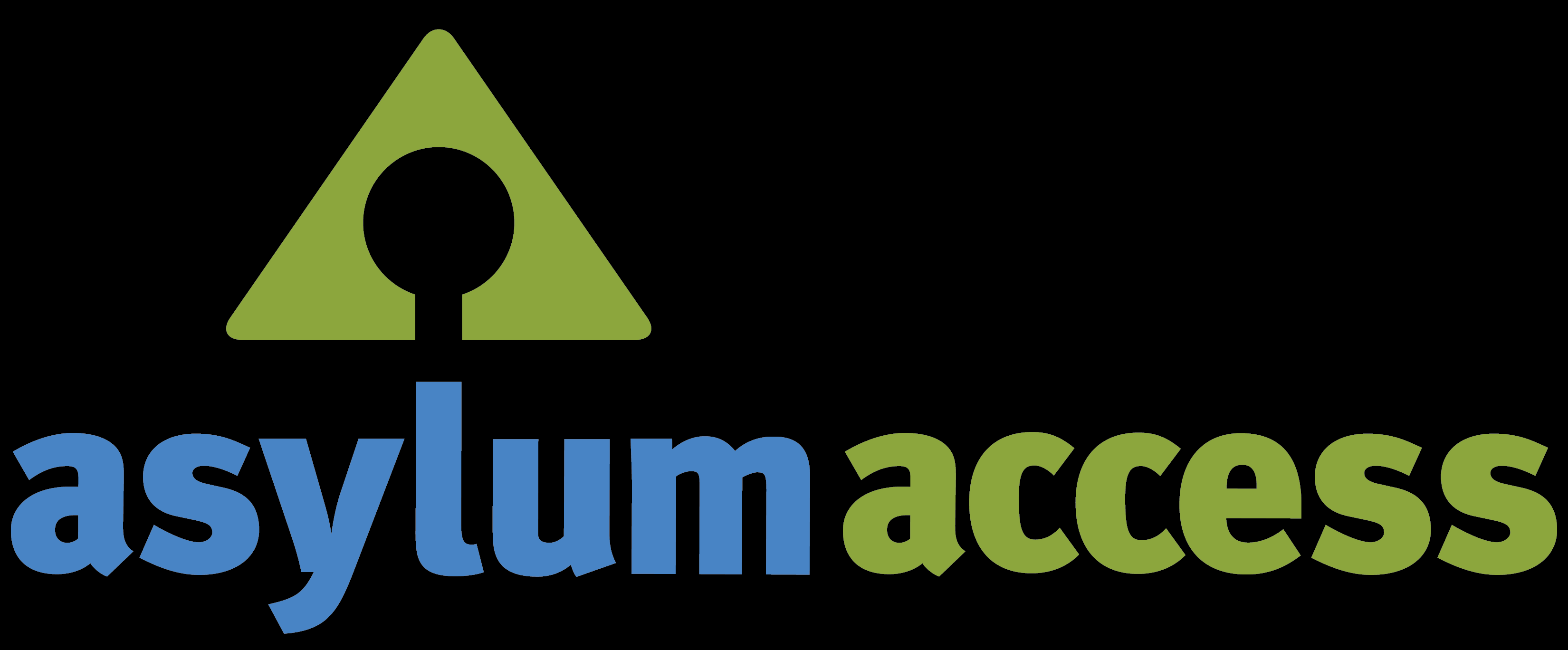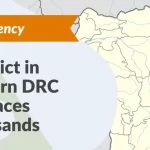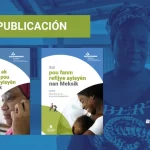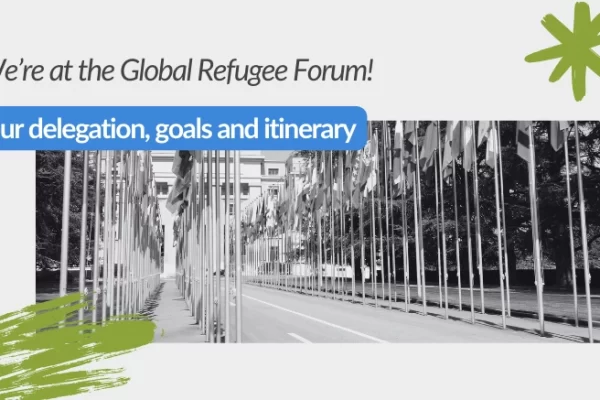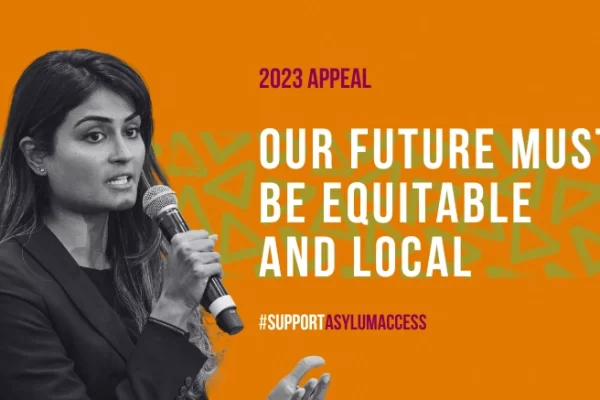How US and European Media Language Used to Describe the Ukrainian Crisis Reflect Deeply Rooted Racism Against Non-European Refugees
Communities across Europe opened their doors to welcome over four million refugees fleeing the Russian invasion of Ukraine which started on the 24th of February, 2022. While solidarity with Ukrainians fleeing the violence has been inspiring, the language used by US and European journalists against non-European refugees fleeing the country is concerning. The terms used to describe non-European refugees reflect a racist European and American policy that only extends human rights protections to certain groups of people to the exclusion of others, making the death and suffering of Middle-Eastern, African and Asian refugees more expected and therefore tolerated.
The racist language used by journalists is only the tip of the iceberg of discrimination. Reports by Euro-Med Monitor’s team and other human rights agencies show that Black, Asian, and Middle Eastern refugees are treated very differently when they arrive at the border in European countries. While Ukrainian refugees receive immediate help and fast processing to cross the border in Poland, refugees of African origin are asked to wait and are sometimes forced to use more dangerous routes to make the trip.
When Charlie D’Agata, a senior CBS News reporter was asked to describe the tragedy taking place in Ukraine, he answered saying: “This isn’t a place, with all due respect, like Iraq or Afghanistan, that has seen conflict raging for decades. This is a relatively civilized, relatively European country, a city where you wouldn’t expect that or hope that it’s going to happen.”
While the backlash forced the journalist to apologize, the words he said on television exposed an entire policy attitude that has been perpetrated for decades by the US and Europe towards refugees from non-European backgrounds. D’Agata’s comparison between wars in the Middle East and Ukraine suggests that the lives lost in Syria, Iraq or Afghanistan are of less value when compared to Ukrainian lives.
Unfortunately, D’Agata was not the only journalist who tried to make the comparison between European and non-European refugees. Reporting for NBC News from Poland, Kelly Kobiella said in an interview: “Just to put it bluntly, these are not refugees from Syria. These are Christians or white”
The French media had its own share of racism when a French commentator on BFM said: “We are in a European city and we have cruise missile fire as though we were in Iraq or Afghanistan, can you imagine?”
These comments that echoed throughout social media and television are evidence of discriminatory policies that have been years in the making. To put it simply, when the media dehumanizes refugees and categorizes them into groups depending on color, race, ethnicity or religion, it becomes easier to roll out a policy that discriminates against people based on those perceptions. The build-up of years of discriminatory language used by the media makes the suffering of non Europeans a norm and the lost lives a statistic which makes people less inclined to take action when these humans pass through similar circumstances.
The spillover from the media discrimination to foreign policy is obvious when we compare the terms used by politicians to describe refugees from the Middle East as “invaders” to terms used to talk about Ukrainians such as “neighbors”. Journalism plays a huge role in telling the story and forming perceptions and terms that the world uses about refugees. Therefore, reporters have the responsibility to become advocates for the human rights of all refugees and make sure that the suffering of people is communicated and reflected equally. Additionally, journalists have a responsibility to report the discrimination they might witness against refugees without using terms that devalue them as humans.
By installing reporting ethics that revolve around human rights and dignity, and having rules of zero tolerance for discriminative language in the media, the errors by reporters like D’Agata and others can be avoided. Currently, non-European refugees are not only being abandoned but attacked by the media and there is much work to do now and in the future to prevent language like this from circulating to protect people’s dignity as they run away from conflict.
While the European and American solidarity with Ukrainians has been inspiring, we have to remember that bombs and missiles cannot tell one’s background and are equally destructive to people’s lives, civilian infrastructure, and cities regardless of the geographic location. We also have to remember that there are millions of refugees around the world who fled violence and for some of them, leaving Ukraine meant being displaced for the second or third time. Taking the decision to leave your home and everything you know behind is equally painful for all humans regardless of the reason they fled, their skin color, religion, or ethnicity.
Therefore, when people flee wars, violence, sexual harassment and other forms of difficult circumstances, they must be welcomed equally because the dangers of the trip they make to safety and the effort they put into building a new life are equal.
Asylum Access works to protect the human rights of refugees and we have extensive guidelines on language that can be used when talking about people’s personal lives and journeys without causing harm.

